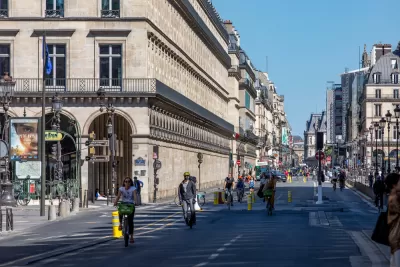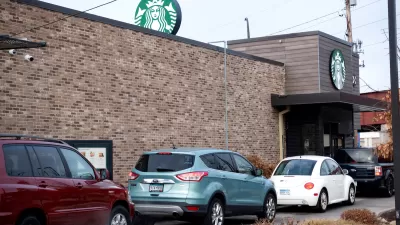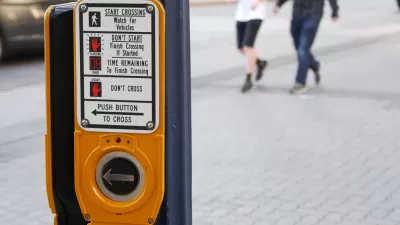While the United States mobilizes to transition to electric cars, cities and countries in Europe are transitioning to fewer cars.

California recently announced its plans to phase out sales of gasoline-powers automobiles by 2035, as was widely reported in the final days of August.
Europe months earlier made a similar announcement, according to an article for Yahoo News by Melissa Rossi, “But in Europe that move is only one step in an ongoing transportation revolution that aims to simultaneously reduce greenhouse gas emissions, air pollution and noise pollution, while increasing livability in urban areas, including the implementation of designs for ‘15-minute cities,’ where daily necessities are located mere steps away from homes.”
The fundamental difference in the European approach is in the goal of reducing the number of cars on the road. Gareth Macnaughton, director of innovation at the European Institute of Innovation and Technology Urban Mobility Initiative, is quoted in the article making the case that just switching to electric cars isn’t sufficient.
“Increasingly, Europe’s urban planners are modifying neighborhoods to restrict car entry — while encouraging ‘active mobility,’ said Macnaughton, such as walking and biking, and mass transit use,” reports Rossi.
The case against cars as the transportation mode of the future is also made in another recent article by John Vidal for the Guardian. “The reality from Hotan to Hull and Lagos to Lahore is that the car is now a social and environmental curse, disconnecting people, eroding public space, fracturing local economies, and generating sprawl and urban decay,” writes Vidal. Local efforts to efforts to limit the use of cars in Europe suggest to Vidal that a key shift is already upon us.
A Planetizen article by Joan Fitzgerald from July 2020 details the numerous cities and local jurisdictions around the world and in Europe making it harder to own and operate a private automobile. There’s a surprising amount of evidence to call on—and while European cities like London and Paris have made substantial mode shifts in recent years, the trend has been at work for years.
FULL STORY: European cities look to phase out cars in 'transportation revolution'

Planetizen Federal Action Tracker
A weekly monitor of how Trump’s orders and actions are impacting planners and planning in America.

Restaurant Patios Were a Pandemic Win — Why Were They so Hard to Keep?
Social distancing requirements and changes in travel patterns prompted cities to pilot new uses for street and sidewalk space. Then it got complicated.

Map: Where Senate Republicans Want to Sell Your Public Lands
For public land advocates, the Senate Republicans’ proposal to sell millions of acres of public land in the West is “the biggest fight of their careers.”

Orange County, Florida Adopts Largest US “Sprawl Repair” Code
The ‘Orange Code’ seeks to rectify decades of sprawl-inducing, car-oriented development.

Maui's Vacation Rental Debate Turns Ugly
Verbal attacks, misinformation campaigns and fistfights plague a high-stakes debate to convert thousands of vacation rentals into long-term housing.

San Francisco Suspends Traffic Calming Amidst Record Deaths
Citing “a challenging fiscal landscape,” the city will cease the program on the heels of 42 traffic deaths, including 24 pedestrians.
Urban Design for Planners 1: Software Tools
This six-course series explores essential urban design concepts using open source software and equips planners with the tools they need to participate fully in the urban design process.
Planning for Universal Design
Learn the tools for implementing Universal Design in planning regulations.
Heyer Gruel & Associates PA
JM Goldson LLC
Custer County Colorado
City of Camden Redevelopment Agency
City of Astoria
Transportation Research & Education Center (TREC) at Portland State University
Camden Redevelopment Agency
City of Claremont
Municipality of Princeton (NJ)





























